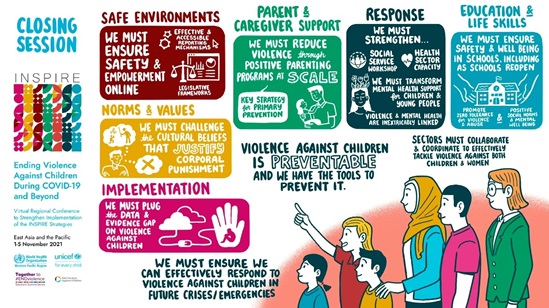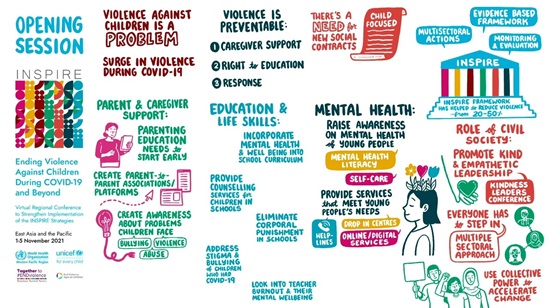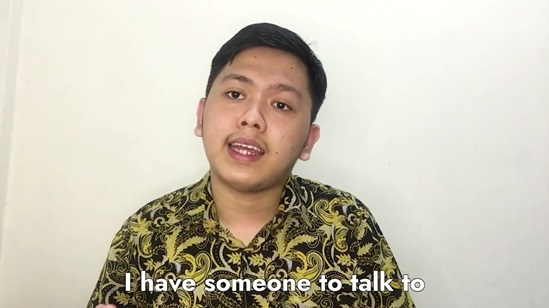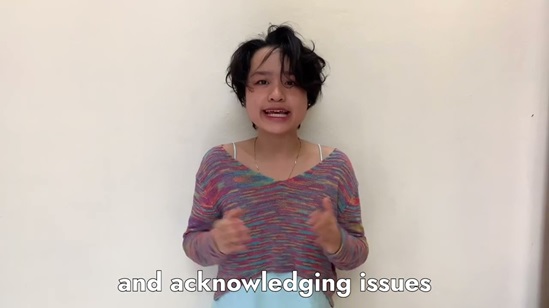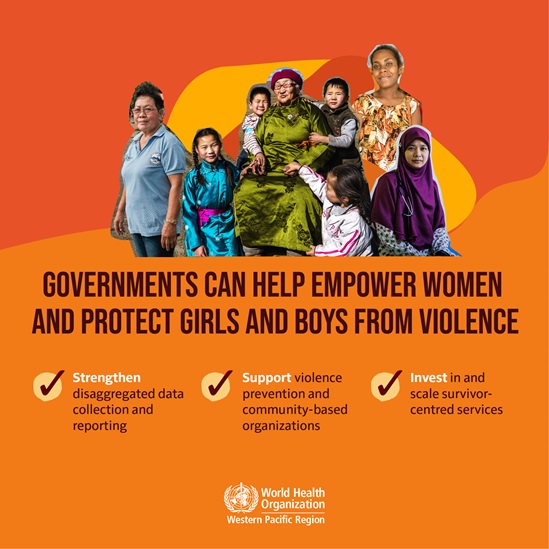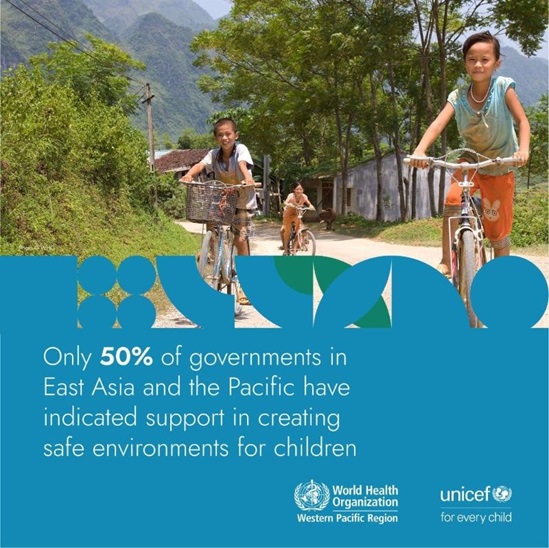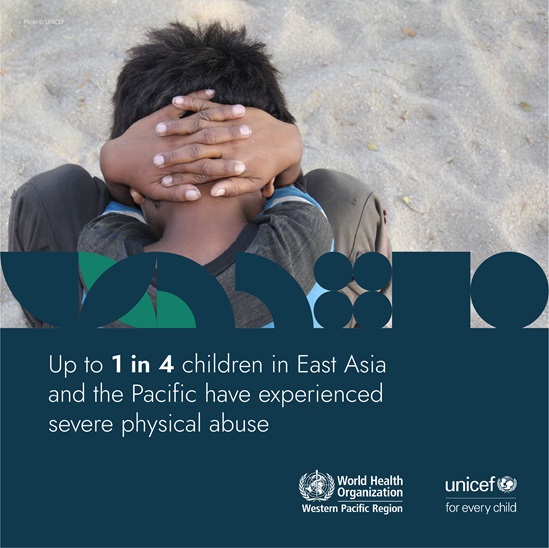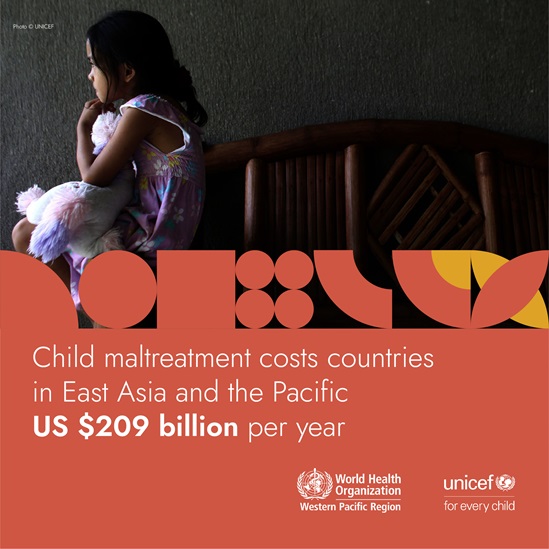Ending violence against children
At least 1 billion children globally experience some form of violence each year. In the Western Pacific Region, violence, including physical, sexual and emotional violence as well as neglect, is a daily reality for many children, making them feel unsafe in their very own homes and communities. Such violence inflicts harm, pain and humiliation on children; it also kills.
The COVID-19 pandemic has led to increased vulnerabilities to violence. There is risk that progress made towards ending violence will slow, or be eroded, due to the socio- economic impact of the pandemic. Without addressing violence against children, national and global efforts and investment in education, health, and early childhood development, as well as progress on the Sustainable Development Goals, will continue to be hindered.
Violence against children is preventable, not inevitable. INSPIRE, an evidence-based resource developed by WHO and 10 international partners, provides 7 strategies to help countries and communities prevent and respond to violence against children and adolescents.
In November 2021, WHO and UNICEF jointly organized the 2nd Second Regional Conference Toward Implementation of INSPIRE Strategies to End Violence Against Children During COVID-19 and Beyond, bringing together 1700 representatives from more than 25 countries in East Asia and the Pacific. The conference identified key actions to protect children from violence, including improving data, making mental well-being and prevention of violence an integral part of the COVID-19 learning recovery agenda, expanding investment in mental health and well-being of children, young people and their caregivers, and ensuring social protection support for families goes hand in hand with positive parenting programmes. Furthermore, the strategies require strengthening social services, justice and health workforce and systems to have the capacity to protect children from violence.











